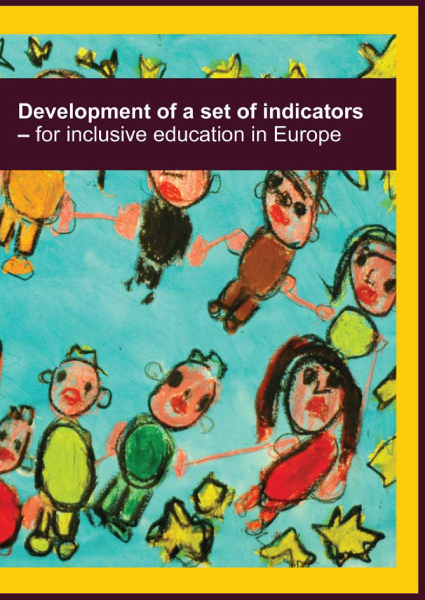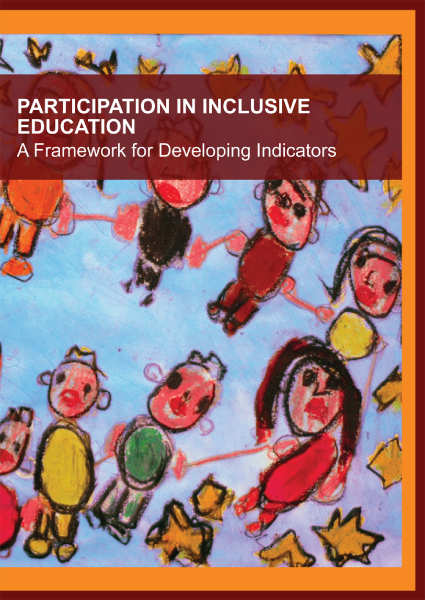Welcome to the Indicators for Inclusive Education web area!
The Indicators for Inclusive Education project (2008–2009) was initiated by Agency member countries as an update of previous Agency work carried out in the field of inclusive education and classroom practice. The outcome of this previous work is available in the reports: Inclusive Education and Classroom Practices and Inclusive Education and Classroom Practice in Secondary Education.
Project framework
The project has received funding from the European Community's Lifelong Learning Programme.
The representatives of the Agency member countries highlighted the need for developing indicators in the area of inclusive education to use as a tool for policy makers to monitor developments in national level policy and practice. In addition, these indicators could also provide a tool for collecting selected data on country developments at the European level.
Tools based upon indicators exist in a few countries, but at the time of starting the project, there was no agreed set of indicators available for countries to explore European level developments. The collaborative and international development of indicators at the European level is considered to provide real European added value as a result of this project.
Project Participants
In total, 32 national experts from 23 countries were involved in project activities. The countries represented in the project were: Austria, Belgium (Flemish and French speaking communities), Cyprus, Czech Republic, Denmark, Estonia, France, Germany, Greece, Hungary, Iceland, Ireland, Italy, Latvia, Lithuania, Malta, the Netherlands, Norway, Portugal, Spain, Sweden, Switzerland and the United Kingdom (England and Scotland).
Aims and objectives
The aim of the project was to develop a methodology that would lead to a set of indicators suitable for national level monitoring, but that could also be applied at the European level. This set of indicators needed a clear focus on the policy conditions that may support or hinder the development of inclusive education within schools.
Several European and international institutions have undertaken work in developing indicators in specific policy areas and this project has built upon those experiences to develop indicators in the field of inclusive education.
The project has consequently had two major objectives:
- Firstly, the development and implementation of a bottom-up approach to identifying relevant indicators. This approach was based on the consensus of the project experts;
- Secondly, specifying an initial set of indicators in this field along with examples of applying them in practice.
Overall, it has been the intention of the project to develop suitable indicators that support constructive comparisons and mutual learning from effective and successful approaches to inclusive education.
Project outputs
The main outcome of the project is a summary report. This report presents the framework, rationale, aims and objectives of the project, as well as the methodology used to develop the set of indicators for the monitoring of developments in inclusive education.
The summary report Development of a set of indicators – for inclusive education in Europe is available to download in 21 languages.
Follow-up project
The follow-up of this project from 2009–2010 focused on making the initial set of indicators operational by developing specific indicators and associated data collection instruments and scales that enable within and cross-country monitoring and comparison work.
The second phase of the Indicators project aimed to build upon the first phase’s work and to develop a model for understanding participation within the context of inclusive education. It took a systematic approach by developing a framework for participation, analysing existing indicator systems and identifying ways to link data or information generated at the individual, classroom, school, local and national levels. The project aimed to provide a better understanding of the complex issues surrounding how policies and practices can help to ensure participation for children, teachers and parents. Its systematic approach also helped to identify gaps in existing indicator systems and propose a way forward for developing new indicators on participation for inclusive education in Europe.
Participation in Inclusive Education – A Framework for Developing Indicators presents the main findings from the second phase of the Indicators for Inclusive Education project.

